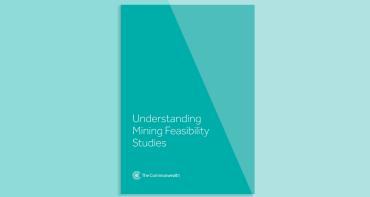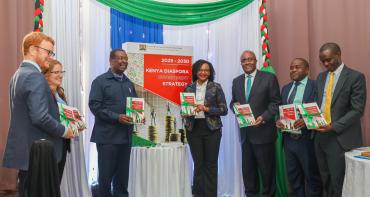CS-DRMS is used by over 100 agencies including Ministries of Finance, Treasuries and central banks, and is in operation in 60 countries –15 outside the Commonwealth.

The Commonwealth Secretariat’s upgraded software for managing public debt is a “powerful” and “invaluable” tool for many countries, Deodat Maharaj, Deputy Secretary-General of the Commonwealth, has said.
Mr Maharaj was speaking at the launch of the Train the Trainer Workshop for the Commonwealth Secretariat’s Debt Recording and Management System (CS-DRMS) 2.0, which was released in 2014.
CS-DRMS is used by over 100 agencies including Ministries of Finance, Treasuries and central banks, and is in operation in 60 countries –15 outside the Commonwealth.
The system, which manages a global portfolio of more than USD 2.5 trillion of public debt, is part of a flagship debt management programme which also includes advocacy, policy advice, support with formulating debt management strategies and capacity building initiatives.
Describing the new software as a “globally-recognised system” Arindam Roy, Head of the Secretariat’s Debt Management section, said: “The relevance of the improved system for debt managers gains importance in view of the growing debt burden in many states across the Commonwealth, following the global economic and financial crisis.
“Since 2008, debt level as a proportion of GDP of the Commonwealth member states increased by 8 per cent in Africa, 6 per cent in Pacific and 15 per cent in the Caribbean.”
Mr Maharaj, further describing the scale of the problem facing Commonwealth countries, highlighted the “unsustainable” and “crippling” debt burdens that some regions carry.
He stressed that this was “hampering growth prospects and threatening the achievement of development objectives.”
He added: “The Secretariat has been in the forefront to assist its member states address their debt challenges, bringing the issue to the attention of the international community and developing a framework to address the problem.”
Focusing on CS-DRMS, he said: “We are conscious that the CS-DRMS has become an invaluable tool to many countries to support effective debt management, based on internationally regarded sound practices and country specific environment.
“We also recognise the need for the software to undergo regular improvements in light of the rapidly changing debt management landscape. I am therefore pleased that the Secretariat released a new version of the software.”
Among the features of the new system, which is provided as a free service to Commonwealth member countries, and is provided to non-member countries at a modest price, are advanced functions, improved accuracy and better reporting tools.
Mr Maharaj also stressed the importance of training to ensure countries “possess the right skill to use it effectively”.
Twenty delegates from around the globe are attending the workshop in London, which will run from the 12-23 January.
Ms Hannatu Suleiman, Director, Debt Recording & Settlement Department at Nigeria’s Debt Management Office, described the “positive impact” CS-DRMS has had on Nigeria’s debt recording and management.
Ms Makampong T’solele, Debt Manager at Lesotho’s Ministry of Finance, declared that the Secretariat has helped to make Lesotho a “model for debt management in southern Africa”.
Ms Juletta Jeffers, Deputy Director at the Eastern Caribbean Central Bank (ECCB), which supports eight countries with an accumulative debt level of around 89% of GDP, hailed CS-DRMS a “top-class system” that is effective in informing the ECCB’s policy advice on debt.
Mr Maharaj added that “despite what the Secretariat has achieved so far, we are not resting on our laurels” and will continue to improve and enhance our service to reflect evolving best practice principles in debt management.



